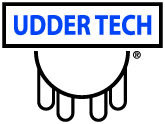At a recent minor league baseball game, my wife and I found ourselves seated next to a lovely young couple who were pretty obviously baseball novices. No issues there; the great thing about live baseball is that you don’t have to be an expert or even all that invested to have a good time. For the most part, they were great company. We chatted amiably about the weather (hot), parking at the stadium (horrendous) and the price of concession stand nachos (higher than that of an actual ticket to the game). We hollered our lungs out when not one, but two base runners scored on a wild pitch in the bottom of the third. It was awesome, just the way a summer evening should be spent.
But then, the dude sitting next to us just lost me. During a rather mundane at-bat, his young bride glanced at the scoreboard, saw the count was 2-1, and asked, “So what exactly does it mean when it’s called a ball?”
Now, the difference between a ball and a strike is among the most basic of baseball concepts. Even so, you’ll get no judgment from me for lacking that knowledge. But what came next did irk me, just a little.
“Two balls equals a strike,” her young husband answered, loudly and authoritatively.
Before I could cut in with an artless, “That’s not it at all, moron,” my wise, sweet wife calmly stopped me by placing a hand on my forearm and leaned toward our neighbors, to whom she very capably and diplomatically explained the difference between a ball and a strike.
“No, I’m pretty sure that’s not it,” shot back the world’s leading expert on apparently everything, in a tone that suggested it would be folly to further question the intellectual authority of the world’s leading expert on apparently everything. I bit my tongue, but largely ignored anything else the guy said for the rest of the evening.
As an editor and writer for this publication, I occasionally find myself in the same position as my neighbor in the cheap seats: put on the spot and expected to answer a question I’m not fully equipped to. The closest connection a lot of my friends and family have to the agriculture industry is me. And, though much of my professional time is spent reaching out to and working with real, live experts on a lot of this stuff, it would be disingenuous to paint myself as an expert. It’s usually a safe assumption that I know more about the beef industry than the average American, but I try to be realistic about the actual degree of my knowledge. Progressive Cattle owes its success to a lot of things, but the hundreds of industry professionals who continue to contribute their expertise rank pretty high on the list.
Truth be told, when it gets into the nitty-gritty of reproductive performance, rumen function, genetic evaluations or the pros and cons of trusts versus wills, I can get in over my head pretty quickly. (Boy, this is turning into a stunningly ringing endorsement of my aptitude, isn’t it?) However, though I may not always know what I’m talking about, I’ve learned that if I keep my mouth shut and pay attention, I can come to understand to an acceptable degree what you’re talking about.
Knowing the difference can make a heck of a difference.







